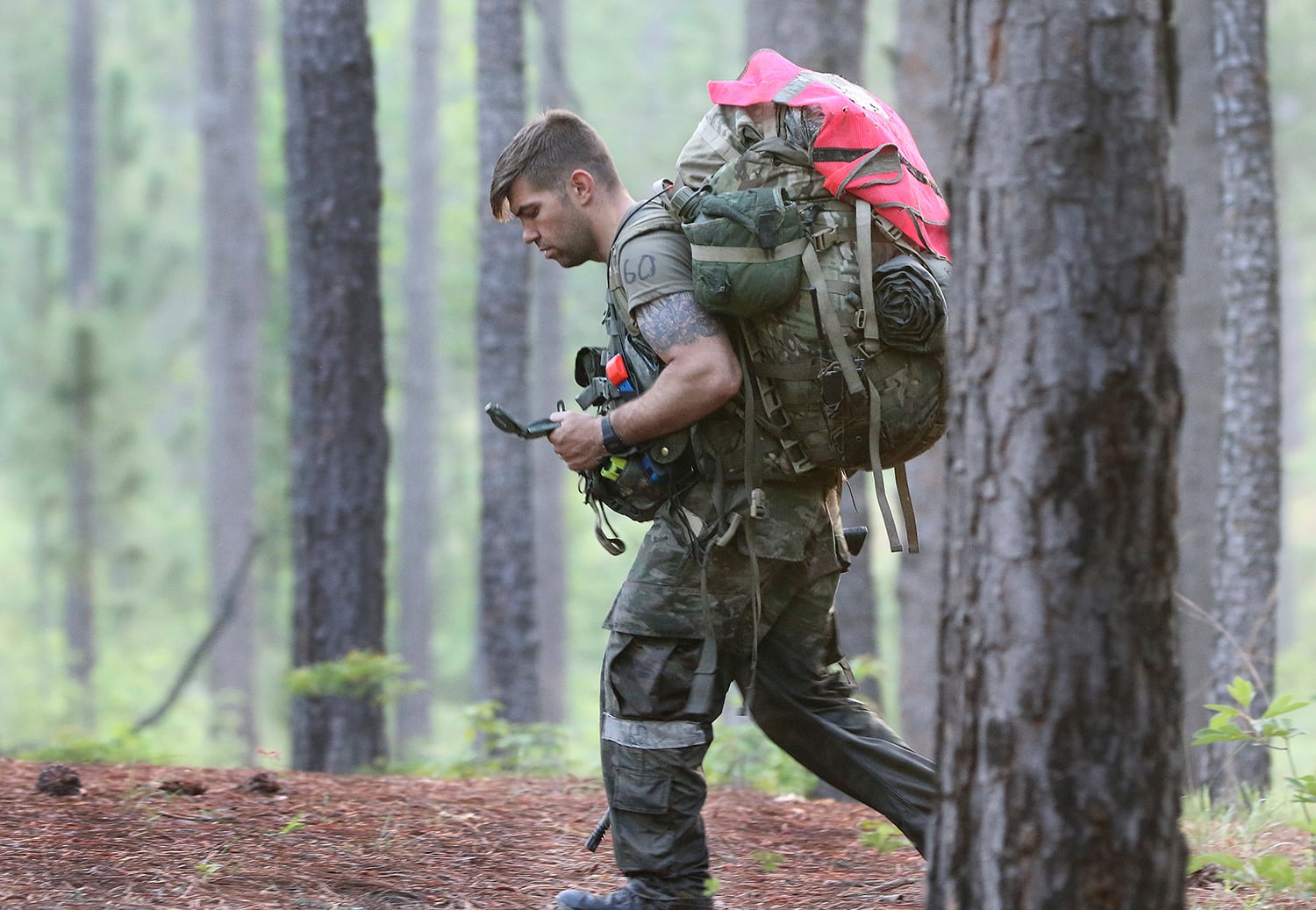Training for roughly 2,500 students in the Army’s special operations pipelines is not stopping for the coronavirus pandemic, said JFK Special Warfare Center and School commander Maj. Gen. Patrick B. Roberson.
Green Beret, civil affairs and psychological operations training courses have continued, though Army Special Operations Command has shut down some advanced training, to include shooting courses and the combat diver course, Roberson said during a livestreamed town hall Thursday.
A special forces selection class slated to start in April was cancelled due to the Pentagon’s travel ban, but SWCS is planning to run another selection class in May, Roberson added. The next Robin Sage exercise, the training program’s culminating event, is still scheduled to start in roughly six weeks, with soldiers currently working through the phases leading up to it.
But not all are happy with the decision to continue. Roberson read a question submitted during the town hall that asked why SWCS is “choosing to endanger students, cadre and their families” by training in the "middle of a quarantine period.”
Roberson responded that SWCS’ training programs have been deemed “mission critical," pointing to the Army’s need for an uninterrupted stream of new special operations soldiers.
“We don’t want to start from a cold start, getting our production line back up,” he said. “Now, again, we’re mitigating risk as best we can. As of right now, no one in the SWCS enterprise has tested positive for COVID and we’re testing as often as we can.”
Army basic training recently entered a two-week pause before shipping any more new recruits, giving hotspots where military entrance processing stations are located a chance to tamp down on the pandemic. However, basic training classes are different in that they’re taking new recruits from the civilian population, according to the SWCS leader.
“We’re actually working with clean populations for the most part. The people we’re taking have been in the Army,” Roberson said. “As of right now we haven’t had anybody who has really been off of Fort Bragg since this started, [who] we’re training.”
Soldiers who are training are not being quarantined during training phases out in Camp MacKall, and though it’s possible that could happen, it remains unlikely, Roberson said.
SWCS also implements “semi-quarantine” phases, Roberson added. He pointed to Green Beret candidates in the Qualification Course who have been in the MOS Phase of training and who are in the process of moving out to Camp Mackall. There, they’ll be briefly quarantined for five days. During that time, they’ll conduct classroom work and be monitored for symptoms.
“We have plenty of doctors, medics and [physician assistants] — probably the highest density of anybody in the military system — and we are utilizing them to do these screening programs,” Roberson said, listing temperature checks, symptoms questionnaires and deep-cleaning of facilities as measures being taken to prevent outbreaks at SWCS.
Although widespread testing is not occurring, if a screened soldier is found to have COVID-19 symptoms, they’ll be tested and results will be returned between six hours and three days, a SWCS official said. That testing process is faster than other units, because SWCS is being prioritized by medical facilities on Fort Bragg, they added.
Kyle Rempfer was an editor and reporter who has covered combat operations, criminal cases, foreign military assistance and training accidents. Before entering journalism, Kyle served in U.S. Air Force Special Tactics and deployed in 2014 to Paktika Province, Afghanistan, and Baghdad, Iraq.




